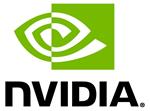Major Collaboration to Fuel Research on NVIDIA-Accelerated Systems Running HPC and Quantum Computing Workloads
HAMBURG, Germany, May 21, 2023 (GLOBE NEWSWIRE) -- ISC—In a major step forward for the field of hybrid quantum-classical computing, NVIDIA today announced plans to build a new lab with the Jülich Supercomputing Centre (JSC) at Forschungszentrum Jülich (FZJ) that will feature a classical-quantum supercomputer in partnership with ParTec AG, Munich, based on the NVIDIA® quantum computing platform.
FZJ, one of the largest interdisciplinary research centers in Europe, will host the lab as part of the Jülich UNified Infrastructure for Quantum Computing (JUNIQ) to run high-performance and low-latency quantum-classical computing workloads. JUNIQ is currently using the JUWELS booster system with 3,744 NVIDIA A100 Tensor Core GPUs for quantum computing simulations.
The NVIDIA quantum computing platform enables tight integration of quantum and classical computing through the open-source CUDA®Quantum programming model and world-class simulation through the NVIDIA cuQuantum software development kit.
JSC plans to use a phased approach to test the system and will use the NVIDIA CUDA Quantum programming model to program quantum processors and integrate them within the Jülich exascale modular supercomputing architecture.
“Unifying quantum computing and GPU supercomputing is a key part of enabling the scientific breakthroughs of tomorrow,” said Timothy Costa, director of HPC and quantum at NVIDIA. “NVIDIA’s collaboration with innovators such as the Jülich Supercomputing Centre and ParTec represents an important milestone for quantum-classical computing, making it accessible to countless new researchers and bringing the first quantum-accelerated supercomputer one step closer.”
“Hybrid quantum-classical systems are bringing quantum computing closer to reality to solve complex problems that classical computing alone is unable to do,” said Kristel Michielsen, head of the quantum information processing group at JSC. “By partnering with NVIDIA on the modular quantum computing laboratory, JSC’s researchers can make unprecedented strides in chemistry and material sciences that drive broader, transformative progress across science disciplines and industries.”
“ParTec has a long history as a driving force in developing the Modular Supercomputing Architecture with its world-class ParaStation Modulo software enabling hybrid, modular computing,” said Bernhard Frohwitter, CEO of ParTec AG. “Quantum computers will be an essential element of any future heterogeneous supercomputer. This development will open totally new possibilities.”
Learn more about the NVIDIA quantum computing platform at ISC.
About Jülich Supercomputing Centre at Forschungszentrum Jülich
The Jülich Supercomputing Centre at Forschungszentrum Jülich has been operating the first German supercomputing centre since 1987, and with the Jülich Institute for Advanced Simulation it is continuing the long tradition of scientific computing at Jülich. At the time being, JSC operates one of the most powerful supercomputers in Europe, JUWELS, and with JUNIQ the first European infrastructure for quantum computing.
About ParTec AG
ParTec designs, builds and supports purpose-built modular supercomputers. As a hardware-agnostic system provider, ParTec AG works with leading technology companies, integrating a broad range of products and technologies of different origin and maturity into modular systems solutions, including novel computing technologies like quantum computing. The foundation of ParTec’s approach is the Modular Supercomputing Architecture with ParaStation Modulo software as a novel heterogeneous system design for high-performance computing. Visit us at www.par-tec.com.
About NVIDIA
Since its founding in 1993, NVIDIA (NASDAQ: NVDA) has been a pioneer in accelerated computing. The company’s invention of the GPU in 1999 sparked the growth of the PC gaming market, redefined computer graphics, ignited the era of modern AI and is fueling the creation of the industrial metaverse. NVIDIA is now a full-stack computing company with data-center-scale offerings that are reshaping industry. More information at https://nvidianews.nvidia.com/.
For further information, contact:
Alex Shapiro
NVIDIA Corporation
+1-415-608-5044
ashapiro@nvidia.com
Regine Panknin
Jülich Supercomputing Centre at Forschungszentrum Jülich
r.panknin@fz-juelich.de
Anja Frohwitter
ParTec
presse@par-tec.com
Certain statements in this press release including, but not limited to, statements as to: the benefits and impact of NVIDIA’s products and technologies, including the NVIDIA quantum computing platform, the NVIDIA CUDA Quantum programming model and the NVIDIA cuQuantum software development kit; NVIDIA’s collaboration with JSC, including the benefits and impact thereof; unifying quantum computing and GPU supercomputing being a key part of enabling the scientific breakthroughs of tomorrow; and NVIDIA’s collaboration with innovators such as the Jülich Supercomputing Centre and ParTec representing an important milestone for quantum-classical computing, making it accessible to countless new researchers and bringing the first quantum-accelerated supercomputer one step closer are forward-looking statements that are subject to risks and uncertainties that could cause results to be materially different than expectations. Important factors that could cause actual results to differ materially include: global economic conditions; our reliance on third parties to manufacture, assemble, package and test our products; the impact of technological development and competition; development of new products and technologies or enhancements to our existing product and technologies; market acceptance of our products or our partners' products; design, manufacturing or software defects; changes in consumer preferences or demands; changes in industry standards and interfaces; unexpected loss of performance of our products or technologies when integrated into systems; as well as other factors detailed from time to time in the most recent reports NVIDIA files with the Securities and Exchange Commission, or SEC, including, but not limited to, its annual report on Form 10-K and quarterly reports on Form 10-Q. Copies of reports filed with the SEC are posted on the company's website and are available from NVIDIA without charge. These forward-looking statements are not guarantees of future performance and speak only as of the date hereof, and, except as required by law, NVIDIA disclaims any obligation to update these forward-looking statements to reflect future events or circumstances.
© 2023 NVIDIA Corporation. All rights reserved. NVIDIA, the NVIDIA logo and CUDA are trademarks and/or registered trademarks of NVIDIA Corporation in the U.S. and other countries. Other company and product names may be trademarks of the respective companies with which they are associated. Features, pricing, availability and specifications are subject to change without notice.
A photo accompanying this announcement is available at https://www.globenewswire.com/NewsRoom/AttachmentNg/31f16b1b-64c0-47da-8a8f-20edad70bf13


